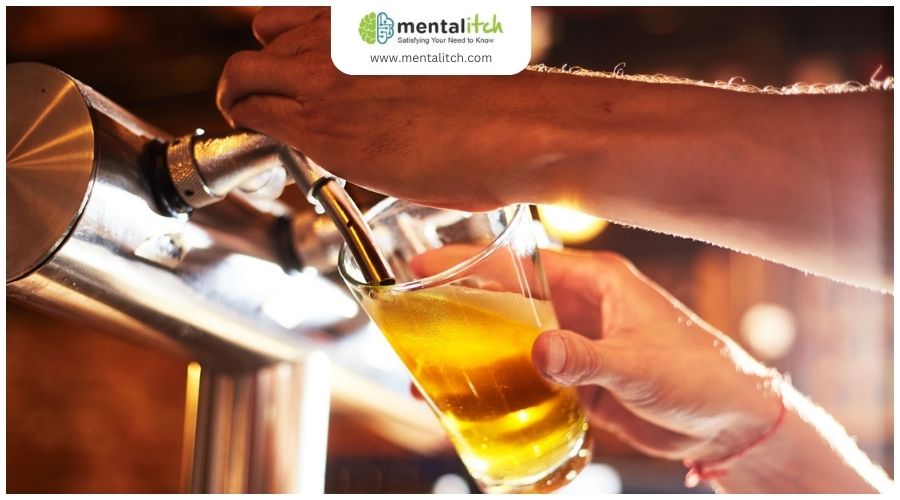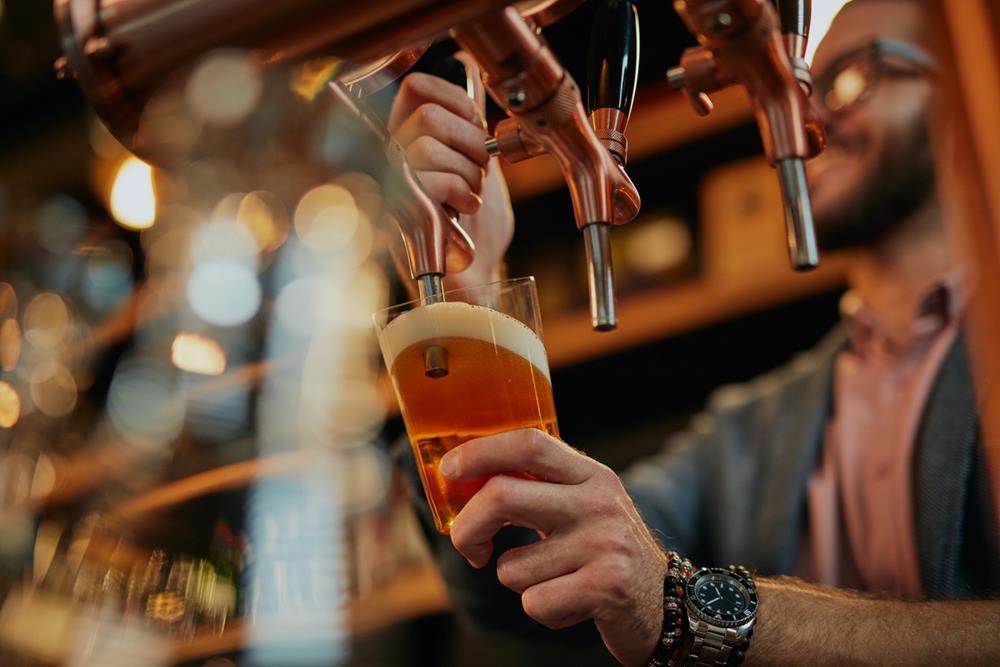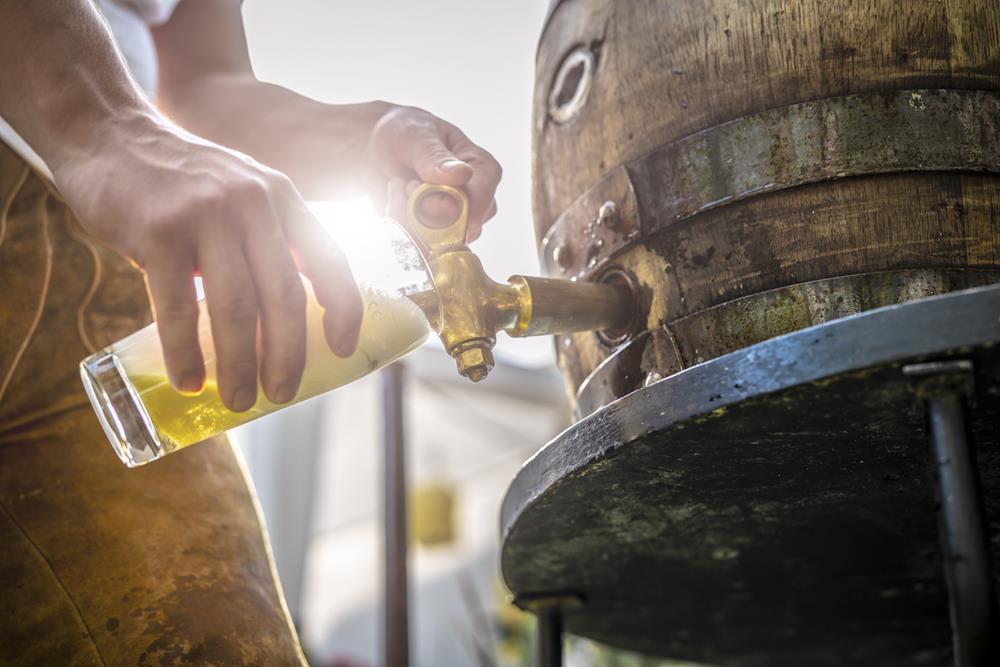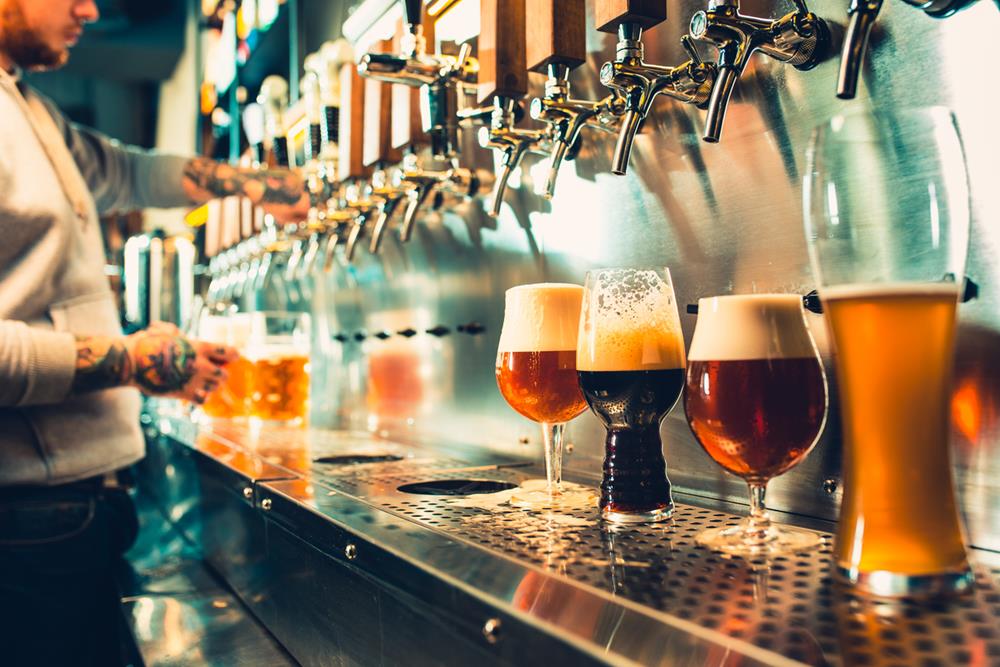Draft beer often holds a special place in the hearts of beer enthusiasts, not just for its refreshing taste but also for the unique experience it offers compared to its bottled or canned counterparts. Beyond the immediate joy of sipping a freshly poured pint, there are several compelling reasons why opting for draft beer can enhance your drinking experience. From the unmatched freshness that accentuates the beer’s flavor and aroma to the environmental benefits of reduced packaging waste, draft beer presents a variety of advantages.
In this article, we will discuss the multifaceted benefits of enjoying beer straight from the tap, exploring everything from its superior taste to its role in supporting local breweries and fostering social connections. Whether you’re a seasoned beer aficionado or someone curious about the draft beer scene, there’s much to appreciate about this beloved beer type.
What is Draft Beer?
Before we discuss the benefits of draft beer, let us first understand what exactly it is. Draft beer, also known as draught beer, is a beer that is served from a keg or cask rather than from a bottle or can. It is materially different from normal canned or European beer, which is carbonated by artificially adding carbon dioxide before sealing. Draft beer is often carbonated naturally through secondary fermentation or mechanically carbonated before being kegged. The beer is kept in pressurized containers and served through a tap system, which allows it to be poured fresh and cold straight into a glass or mug at bars, restaurants, and pubs.
The key characteristics of draft beer include its freshness, as it is typically consumed closer to the brewing and kegging process than bottled or canned beers. This can result in a beer that retains more of its original flavor and aroma, offering a superior taste experience. The serving method of draft beer also contributes to its texture and appearance, often providing a perfect level of carbonation and a frothy head that beer lovers appreciate.
Moreover, draft beer systems allow for a wide variety of beer to be served, including limited releases and local craft beers, which might not be available in bottled form. This variety, along with the communal aspect of sharing a beer at a bar or brewery, enhances the social experience of beer drinking. Overall, draft beer represents not just a method of serving beer but a comprehensive beer enjoyment experience, valued for its freshness, flavor, and the sense of community it fosters among enthusiasts.
Benefits of Drinking Draft Beer
Drinking draft beer offers several benefits that enhance the overall beer consumption experience. Here’s a closer look at these advantages:
- Freshness: Draft beer is often fresher than its bottled or canned counterparts. Since it’s stored in kegs and served directly from them, it’s less exposed to light and air, which can degrade beer quality over time. This freshness can lead to a beer that tastes closer to what the brewer intended, with more vibrant flavors and aromas.
- Superior Taste and Aroma: Due to its freshness and the way it’s served, draft beer can offer a superior taste and aroma profile. The handling and serving process for draft beer can preserve the beer’s intended flavor complexity and aromatic nuances, making it a preferred choice for tasting the full expression of the beer’s ingredients.
- Environmental Benefits: Choosing draft beer can be more environmentally friendly. With less need for individual packaging materials such as glass bottles or aluminum cans, there’s a reduction in packaging waste. Furthermore, kegs are reusable, contributing to a decrease in the overall environmental impact associated with beer consumption.
- Variety and Selection: Bars and breweries often feature a wide selection of draft beers, including seasonal specialties, limited releases, and local craft options not available in bottles or cans. This variety allows consumers to explore a broader spectrum of beer styles and flavors.
- The Social Experience: Enjoying a draft beer at a bar, brewery, or social gathering offers a communal experience that bottled beer often lacks. The act of sharing a beer with friends or engaging in conversations with strangers over a pint can enhance enjoyment and create lasting memories.
- Cost-Effectiveness: In some cases, especially when purchasing beer in larger quantities like growlers, draft beer can be more cost-effective than bottled or canned beer. Establishments may offer discounts for bulk purchases, making it a budget-friendly option for consumers.
- Support for the Beer Industry: Opting for draft beer, especially from local breweries, supports the beer industry directly. It helps local establishments and brewers thrive by increasing demand for diverse and locally produced beers.
- Better Carbonation and Serving Experience: The keg system used to serve draft beer often provides a more controlled and consistent level of carbonation, enhancing the beer’s mouthfeel and overall drinking experience. The ritual of watching a beer being poured fresh, with the perfect head, adds to the enjoyment.
Draft beer is celebrated not just for its freshness and flavor but also for its environmental benefits, diverse selection, communal drinking experience, and support for local businesses. These benefits collectively contribute to why many beer enthusiasts prefer draft beer over bottled or canned options.
Possible Health Benefits of Draft Beer
While the benefits of drinking draft beer are often focused on taste, freshness, and the social aspect, there are general health benefits associated with moderate beer consumption that can apply to draft beer as well. It’s important to note that these benefits are most likely to be observed when beer is consumed in moderation, which is typically defined as up to one drink per day for women and up to two drinks per day for men. Here are some potential health benefits:
- Nutritional Content: Beer contains small amounts of vitamins and minerals, including B vitamins, potassium, and magnesium. Draft beer, especially unfiltered varieties, may retain more of these nutrients.
- Heart Health: Moderate beer consumption has been associated with a lower risk of heart disease. The alcohol and certain compounds in beer, like antioxidants, can contribute to heart health by improving the balance of good (HDL) cholesterol to bad (LDL) cholesterol and reducing inflammation.
- Bone Density: Beer is a good source of dietary silicon, an element involved in bone formation and health. Moderate consumption may help maintain bone density.
- Reduced Risk of Kidney Stones: Some studies suggest that moderate beer consumption may reduce the risk of developing kidney stones due to its high water content and diuretic effect, along with compounds that could help lower the risk of stone formation.
- Longevity and Reduced Risk of Certain Diseases: Moderate alcohol consumption, including beer, has been linked to a lower risk of certain diseases and a longer life expectancy. This includes a reduced risk of type 2 diabetes and possibly Alzheimer’s and Parkinson’s diseases.
- Social and Psychological Benefits: While not a direct health benefit, the social interaction that often accompanies going out for draft beer can have positive effects on mental health, including reduced stress and improved feelings of well-being.
It’s crucial to emphasize that excessive alcohol consumption negates these potential benefits and can lead to serious health issues, including liver disease, heart problems, addiction, and an increased risk of certain cancers. The key to reaping any health benefits from beer lies in moderation and responsible drinking.
More Interesting Facts About Draft Beer
Here are some more interesting facts about draft beer that you need to know about:
- Origins of Draft Beer: The concept of serving beer from a cask or keg dates back hundreds of years, with early methods involving simple wooden casks. The modern keg and tap system, however, became popular in the 20th century, revolutionizing how beer was stored, transported, and served.
- Nitro Beer: Some draft beers, known as nitro beers, are infused with nitrogen instead of carbon dioxide, giving them a creamier texture and smoother taste. This method is famously used in stouts like Guinness.
- Cask Ale: Also known as “real ale,” cask ale is a type of draft beer that is conditioned (including secondary fermentation) and served from a cask without additional nitrogen or carbon dioxide pressure. It’s often served at a slightly warmer temperature than keg beer.
- Longest Beer Tap System: The longest beer tap system in the world is found in the Delirium Café in Brussels, Belgium, offering more than 2,000 different types of beer, including many on draft.
- Growlers: Growlers, which are glass, ceramic, or stainless-steel jugs, are often used to transport draft beer from a tap to a home. They allow beer enthusiasts to enjoy fresh draft beer outside of bars or breweries.
- The Invention of the Keg: The modern beer keg, a pressurized metal barrel designed to keep beer fresh and carbonated, was introduced in the 1960s. Before this, wooden barrels were the norm.
- Temperature Matters: The ideal serving temperature for draft beer varies by style, with lagers typically served colder than ales. The temperature can significantly affect the beer’s flavor and aroma.
- CO2 and Beer Freshness: The carbon dioxide used in most draft systems not only carbonates the beer but also helps preserve it by preventing oxidation, keeping the beer tasting fresh longer.
- Draft Beer Systems in Space: Researchers have developed a microgravity draft beer system for space. While alcohol is currently prohibited on the International Space Station, this innovation could allow astronauts to enjoy fresh beer in the future.
- Environmental Impact: Draft beer is considered more environmentally friendly than bottled or canned beer due to reduced packaging waste and lower transportation weight, contributing to a smaller carbon footprint per serving.
Conclusion
Draft beer offers a unique and enjoyable experience for beer lovers, combining the freshness, rich flavors, and aromas that bottled or canned beers often can’t match. With its environmental benefits, variety, and the communal joy it brings, draft beer stands out as a favorite among both casual drinkers and connoisseurs.
Whether you’re savoring a pint at your local pub or exploring the diverse offerings of craft breweries, the world of draft beer is filled with delightful discoveries and experiences worth cherishing. Remember, the best way to enjoy beer is responsibly and in moderation, allowing you to fully appreciate the craftsmanship and tradition behind every pour. To learn more facts about beer, you may read our comprehensive guide to beer.





